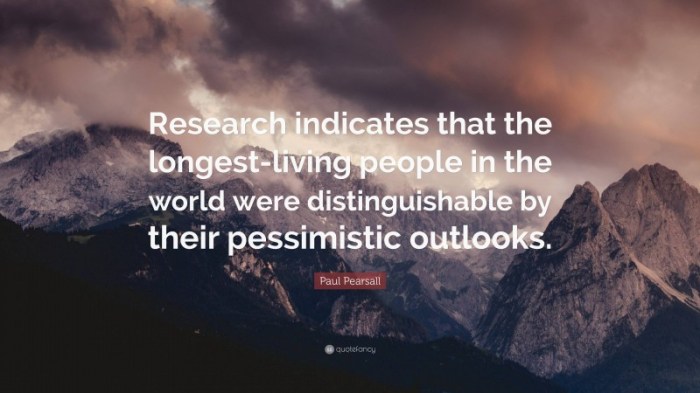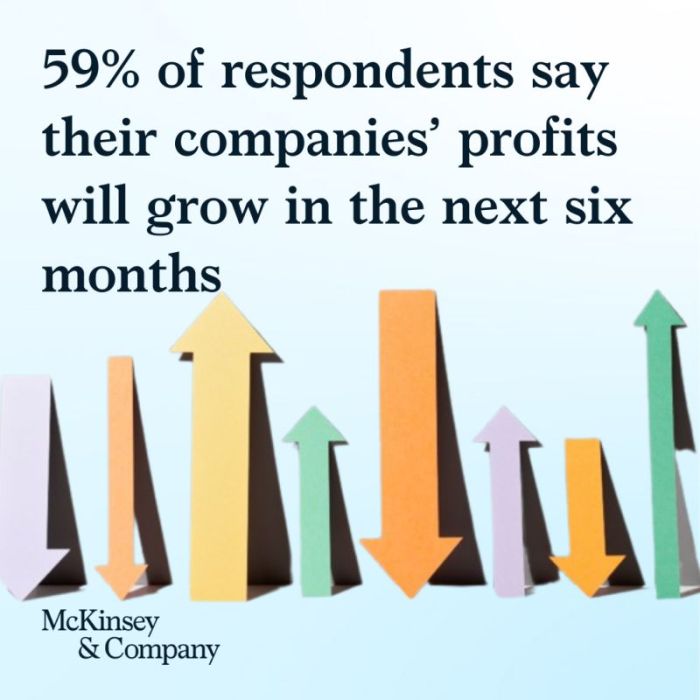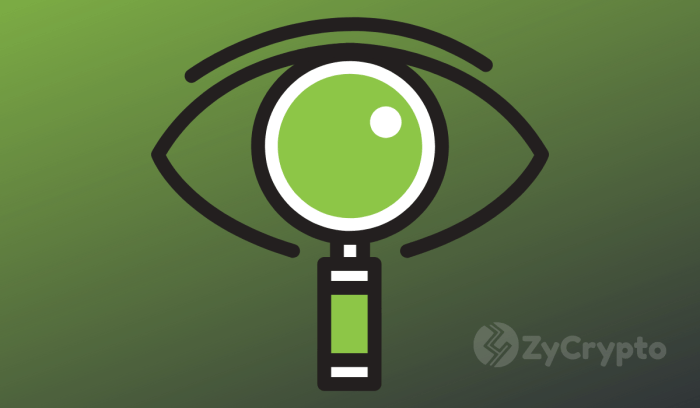People with negative expectations or pessimistic outlooks are likely to – As people with negative expectations or pessimistic outlooks take center stage, this opening passage beckons readers into a world crafted with authority and precision, ensuring a reading experience that is both captivating and profoundly insightful.
The topic at hand delves into the profound impact of negative expectations and pessimistic outlooks on various aspects of life, from personal well-being to interpersonal dynamics and career trajectories. Through a comprehensive examination of scientific evidence and real-life examples, this exploration unravels the intricate mechanisms that underlie these outlooks and their far-reaching consequences.
Impact on Self

Individuals with negative expectations or pessimistic outlooks often fall prey to self-fulfilling prophecies. They anticipate failure, which in turn leads to behaviors and actions that actually bring about the negative outcomes they feared. This can hinder personal growth and development, as individuals may avoid challenges or opportunities out of fear of failure.
Psychologically, negative expectations can contribute to low self-esteem and a negative self-image. Individuals may internalize these negative beliefs, leading to a diminished sense of self-worth and a lack of confidence in their abilities.
Impact on Relationships
Negative expectations can strain relationships, as individuals may project their pessimism onto others. They may expect the worst from their partners, friends, or family members, which can lead to misunderstandings, conflict, and emotional distance.
Case studies have shown that pessimistic individuals tend to have lower relationship satisfaction and are more likely to experience relationship problems. Communication barriers can arise, as individuals may be hesitant to share their thoughts and feelings due to fear of being judged or dismissed.
Impact on Health
Research has established a link between negative expectations and physical well-being. Individuals with pessimistic outlooks have been found to have higher levels of stress, anxiety, and depression.
Physiologically, negative expectations can affect the immune system, cardiovascular health, and hormonal balance. Stress hormones released in response to pessimism can lead to inflammation, increased blood pressure, and impaired immune function.
Impact on Career, People with negative expectations or pessimistic outlooks are likely to
Negative expectations can limit career opportunities by influencing job performance and advancement.
Individuals with pessimistic outlooks may be less likely to take risks or pursue challenging roles, as they fear failure. This can hinder their career growth and limit their earning potential.
To overcome negative expectations in the workplace, individuals can engage in positive self-talk, focus on their strengths, and seek support from mentors or colleagues.
Impact on Decision-Making
Negative expectations can bias decision-making by distorting individuals’ perceptions of risk and reward.
Pessimistic individuals tend to overestimate the likelihood of negative outcomes and underestimate the potential benefits of positive outcomes. This can lead to poor decisions, as they may avoid opportunities or make choices that are not in their best interests.
Cognitive processes such as confirmation bias and selective attention contribute to biased decision-making, as individuals seek information that confirms their negative expectations and ignore evidence that contradicts them.
FAQ Resource: People With Negative Expectations Or Pessimistic Outlooks Are Likely To
How can negative expectations lead to self-fulfilling prophecies?
Negative expectations can create a self-reinforcing cycle where individuals perceive and interpret events in a way that confirms their initial beliefs. This can lead to behaviors that perpetuate the negative outcome, ultimately fulfilling the prophecy.
What are the communication barriers that arise from pessimistic outlooks?
Pessimistic individuals may be less likely to express their needs and desires, leading to misunderstandings and strained relationships. They may also be more critical and dismissive of others’ perspectives, creating barriers to effective communication.
How does pessimism affect physical well-being?
Pessimistic outlooks have been linked to increased inflammation, higher levels of stress hormones, and a weakened immune system. This can contribute to a range of health problems, including cardiovascular disease, depression, and chronic pain.


